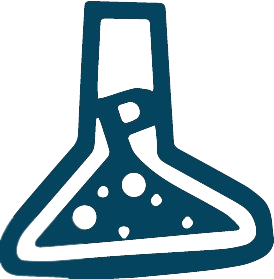The Science Behind the Benefits of Coffee: More Than Just a Caffeine Kick
The Science Behind the Benefits of Coffee: More Than Just a Caffeine Kick
By Auburn Johnson MSc
Coffee, one of the world's most beloved beverages, has been enjoyed for centuries for its rich flavor and stimulating effects. Beyond its delicious taste and ability to kickstart our mornings, coffee boasts a plethora of scientifically-backed benefits that extend beyond mere caffeine buzz. In this article, we will delve into the fascinating science behind the various health advantages associated with coffee consumption.
1. Antioxidant Powerhouse:
Coffee is a rich source of antioxidants, which play a crucial role in neutralizing harmful free radicals in the body. Free radicals are unstable molecules that can damage cells and contribute to aging and various diseases, including cancer. The antioxidants in coffee, such as chlorogenic acid, may help protect the body from oxidative stress and inflammation.
2. Boosts Physical Performance:
Caffeine, the most well-known component of coffee, is a natural stimulant that can enhance physical performance. By increasing adrenaline levels, coffee prepares the body for physical exertion, improving endurance and overall athletic performance. This effect is particularly evident in activities that require sustained effort, making coffee a popular choice among athletes.
3. Cognitive Benefits:
Coffee is renowned for its ability to enhance cognitive function and improve mental alertness. Caffeine, the central nervous system stimulant found in coffee, blocks the action of adenosine, a neurotransmitter that promotes sleep and relaxation. By doing so, coffee helps increase the release of other neurotransmitters like dopamine and norepinephrine, leading to improved mood, reaction time, and overall cognitive function.
4. Supports Weight Management:
Several studies suggest that caffeine can boost metabolism and promote fat burning. By stimulating the nervous system, coffee increases the release of epinephrine, which signals the body to break down fat cells. Additionally, coffee contains chlorogenic acid, which may contribute to reducing the absorption of carbohydrates in the digestive tract. These factors make coffee a potential ally in weight management and metabolic health.
5. Protects Against Neurological Diseases:
Regular coffee consumption has been linked to a reduced risk of certain neurodegenerative diseases, including Alzheimer's and Parkinson's. The neuroprotective properties of coffee are believed to be attributed to its ability to modulate inflammation, protect neurons, and enhance the production of brain-derived neurotrophic factor (BDNF), a protein that supports the survival and function of nerve cells.
6. Liver Health:
Coffee has been associated with a lower risk of liver diseases, including cirrhosis and liver cancer. The liver plays a crucial role in detoxifying the body, and coffee appears to support these functions. The antioxidants in coffee, along with caffeine, may contribute to reduced inflammation and protection against liver damage.
While the stimulating effects of caffeine are what many coffee drinkers seek, the science behind the benefits of coffee extends far beyond a morning pick-me-up. From its antioxidant properties to its potential role in reducing the risk of various diseases, coffee has earned its place as a beverage that not only delights the taste buds but also contributes to overall health and well-being. As with any dietary component, moderation is key, but the research suggests that enjoying a cup of coffee can be a flavorful and healthful addition to our daily routines












